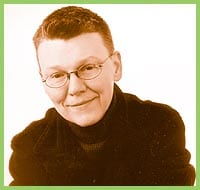The numbers are in. Statistics Canada counted 34,200 same-sex couples in Canada during its 2001 census.
Now it’s nice these folks are being counted. In fact, I think that it’s important for a range of public policy reasons to have an accurate demographic read of Canada’s population. And if we could get the numbers right, it would in fact be helpful in promoting the idea that Canada’s families are a diverse bunch, and that the old idea of the traditional family – father, mother, kids at home – needs to be tossed into the statistic garbage bin (see next item).
But what’s really interesting is not the numbers, but what the numbers mean.
First, let’s remember that there is simply nothing objective about these numbers.
It simply is not the case that there are only 34,200 same-sex couples living in Canada, nor are there only 15,200 lesbian couples in the country nor only 2,280 lesbian couples raising children. I swear there were more lesbian moms at the last Pride Day barbecue we went to.
Experts and activists have pointed out the likelihood of serious underreporting of same-sex couples on the census. Other countries that have done similar counts have found a noticeable increase in the number of gay and lesbian households between first and subsequent countings. The reason is not some mysterious wave of mass coming out of heretofore heterosexuals, but simply the fact that gay folks become less nervous over time about actually ticking off the box that says, “Yep, me and my partner are gay.”
So next time around we can expect a substantial increase in the number of gay and lesbian households, which hopefully will not create a rightwing panic about massive homosexual conversions.
What fascinates me about these figures, though, is the way gay and lesbian folks have arrived on the national statistical scene. We have not arrived as individuals, but as relationships. It is not gay men and lesbians who have arrived, but same-sex couples.
It is part of the way in which our membership as sexual minorities in the Canadian nation is mediated through the lens of respectable relationships. We are becoming citizens, not as individuals but as individuals in relationships. Gay and lesbian folks are being granted legal rights and responsibilities and recognition as couples, as folks who live in committed, nuclear, loving, committed relationships.
Lots of gay men and lesbian live like this. But lots don’t. And in the census data we simply see a playing out of a larger debate in the gay and lesbian community about the privileging of relationships. Just like in the struggles for same-sex relationship recognition in the courts, gay and lesbian relationships takes priority over other gay and lesbian issues. Romantic and familial relationships rule, not friendly or sexual ones.
Our legitimacy comes only through conjugality (the law isn’t quite sure what that means, but it knows that it has something to do with sex and the mingling of economic resources) rather than sexual beings in pursuit of sexual liberation or intense and loving friends in search of alternative understandings of family.
In fact, these folks and their legal struggles have been largely left behind in recent rights struggles. And these folks have again been left behind in the now official figures about Canada’s gay and lesbian population.
Now, I am not in favour of the official counters going from household to household asking intimate details about peoples’ sexual practices (“How many sexual partners have you had in the last month: zero, one, two to five, or more than five?”). But I do think it’s important to recognize what the numbers leave out.
Because they’re leaving out many lesbians and gay men who don’t live in relationships or who are pursuing alternative visions of relationships that simply don’t get counted.
And it’s important that we remember that the people who don’t get counted still count.
* Brenda Cossman is a member of the board of Pink Triangle Press, which publishes Xtra.


 Why you can trust Xtra
Why you can trust Xtra


